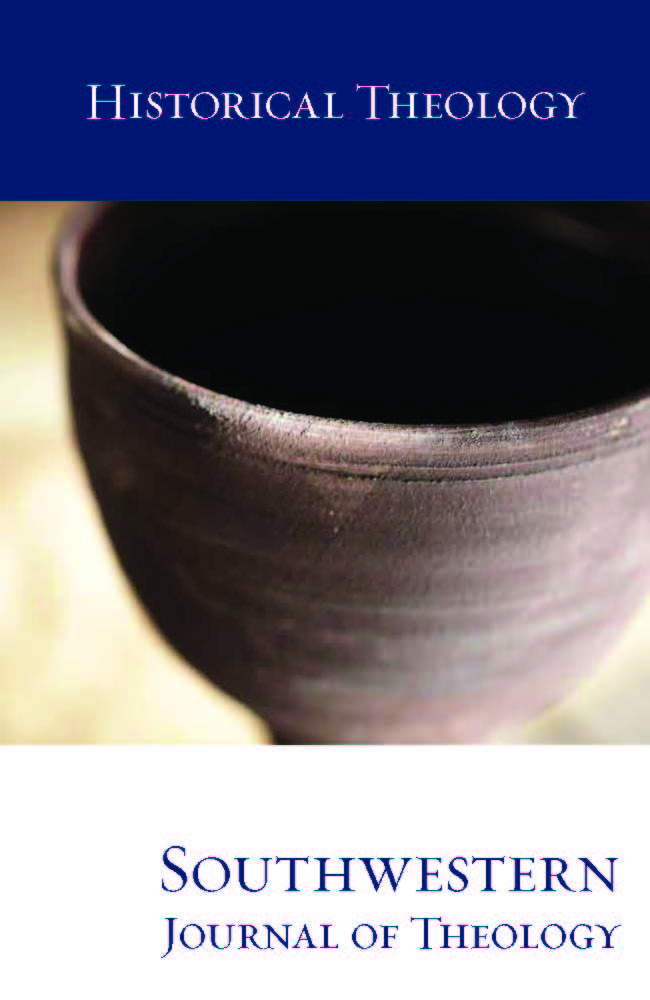
Historical Theology
Southwestern Journal of Theology
Volume 57, No. 2 – Spring 2015
Managing Editor: Terry L. Wilder
By Tony Burke. Grand Rapids: William B. Eerdmans, 2013. 170 pages. Paperback, $18.00.
Many contenders for what ultimately became the Christian New Testament were gospels, histories, epistles, and apocalyptic writings. The traditional and conservative view is that God inspired the twenty-seven writings that now comprise the New Testament (2 Tim 3:16-17), guided the slow process of determining their canonicity, and had his hand upon the transmission process, but he did not inspire any the other writings, such as the New Testament Apocrypha.
However, a number of modern scholars believe the New Testament Apocrypha were not deemed canonical for arbitrary and subjective reasons. In this camp is Tony Burke, an associate professor of Religious Studies at York University in Toronto. He has studied these writings for many years and believes they give helpful insight to “our knowledge of Christian thought and history” (6). Secret Scriptures is an introduction to these writings that is aimed at the layperson (4), and Burke accomplishes this task with a book that is easy for the non-specialist to understand.
This is a well-written book. It is a somewhat brief but informative primer on the Christian Apocrypha that defines terms clearly, gives a good description of these writings, and tells their stories in an interesting narrative fashion. Rather than giving a long list of writings and descriptions, Burke focuses a chapter on: (1) Jesus’ life, (2) his passion and resurrection, and (3) the early church, and the narratives contain the heart of many stories from noncanonical sources. Burke shows the broad range of extant texts for each apocryphal writing—from only a few to several hundred copies. He also mentions when sections of text are missing from available copies. At the end of each section is a small but helpful group of “Sources and Studies” so the reader can do further research if desired.
Burke places himself somewhere in between those whom he calls the “conservative apologists” (evangelical Christian scholars, such as Darrell Bock, Dan Wallace, and Ben Witherington) and “their enemies” (such as Bart Ehrman, Elaine Pagels, and John Dominic Crossan). He attempts to clear up the “misinformation”; however, he undoubtedly is on the latter side (130-31). He astutely observes that conservative scholars tend to respond to the claims of liberal scholars, but liberal scholars usually ignore conservative scholars (131). At least Burke belies this trend by responding to some conservative claims (131-48), even though his replies are unsatisfactory to this reviewer. For instance, in responding to the warning that reading the Christian Apocrypha could harm one’s faith, Burke states if a person has a high view of Scripture then that faith ought to be harmed, and as a professor he takes joy in seeing “many students experience crises of faith” who end up feeling “cheated, misled, manipulated” by their conservative pastors and congregations back home (146-47). So, rather than disproving the point of those he calls “conservative apologists,” Burke helps illustrate their point of the damage that studying the Apocrypha can do.
Burke’s bias toward these noncanonical writings is evident in the book’s title: they are “secret Scriptures.” According to Burke, at least some of the writings are just as much Scripture as the present New Testament canon. He believes they should be read side-by-side and given equal value with the New Testament (141, 148, 151). He repeatedly reminds the reader that the leaders of the church tried to suppress these writings (e.g., 45, 128, 150). Burke posits the postmodern claim that everything is relative and “history is written by the winners” (16-19, 144-46). In other words, he agrees with Walter Bauer’s claim (and more recently the belief of Bart Ehrman and others) that modern Christianity is not the best or truest version of Christianity—it is just the version that happened to win (18-19).1 Consequently, what is considered “orthodox” or “heretical” today could just as easily have been reversed had another strain of Christianity won, such as Gnostic Christianity (20-22).
Although Burke admits that archeological finds have largely disproven the Bauer Thesis, he still claims one cannot trust “orthodox” Christianity today over any “heresy” from the last 2,000 years (19, 22, 145-46). Here are four brief responses. First, Burke ignores the role of the Holy Spirit in inspiring Scripture (2 Pet 1:21), for Burke treats the New Testament writings and the noncanonical writings as simply products of people alone. Second, he has a low view of Scripture (148-49), but a high view of Scripture gives one a better perspective on the differences and inadequacies in the New Testament Apocrypha. Third, he disregards the Holy Spirit’s illumination of God’s Word—guiding the church in truth (John 16:13)—from the early church through today. Fourth, he overlooks the fact that orthodox Christianity fits nicely with the Old Testament, and a heresy such as Gnosticism simply does not fit.
Despite his flawed understanding of the importance of the New Testament Apocrypha, Burke has written a helpful, instructive, and easily understandable guide to these texts. As a good companion to this text, Burke has an informative blog full of articles and sources at www.tonyburk.ca/apocryphicity.
- See Walter Bauer, Orthodoxy and Heresy in Earliest Christianity, Philadelphia Seminar on Chris-
tian Origins (Philadelphia: Fortress, 1971). ↩︎





